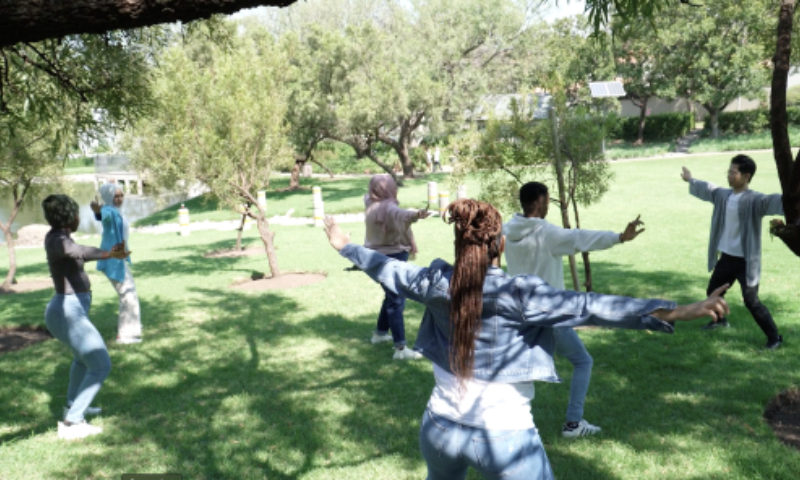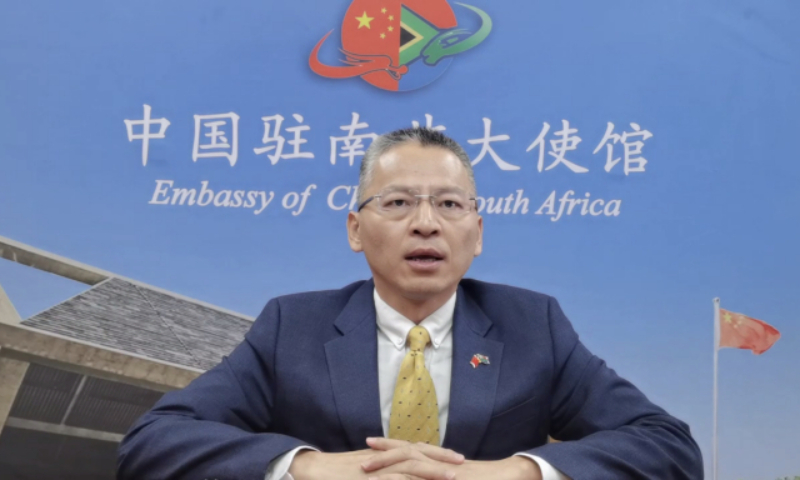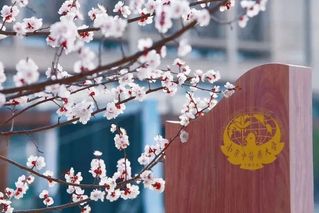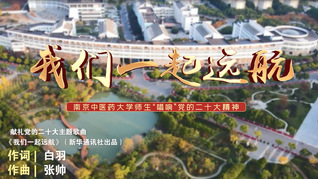Nanjing University of Chinese Medicine (NJUCM), the Traditional Chinese Medicine (TCM) Clinical Training Center of the University of Johannesburg and the Chinese Medicine and Acupuncture Association of Africa co-hosted the 4th Africanizing the Art of Acupuncture International Webinar 2024 on Sunday. Ten speakers from both China and South Africa shared their insights with at least 180 attendees during the webinar. Some speakers at the event shared with Global Times their point of view on acupuncture and cultural exchanges.
This is the fourth year the annual event, which reaches professional practitioners in both countries, has been held.
The webinar aimed to advance the development of Chinese medicine and acupuncture in South Africa, promote communication and collaboration, and support TCM career development for both practitioners and students in Africa. It also serves as a platform for academic exchanges of traditional medicine in China and South Africa, said Professor Hu Lihong, vice president of Nanjing University of Chinese Medicine, while opening the webinar.
Founded in 1954, NJUCM is one of the first TCM universities to be accredited by the Chinese Ministry of Education to recruit foreign students. More than 30,000 international students have graduated from the institution, Hu introduced.
With four overseas TCM centers, NJUCM has been collaborating with more than 90 countries and regions on traditional medicine communication, education and research, he added.
One of the host-speakers at the webinar, Dr Hu Zijing, senior lecturer at the Department of Complementary Medicine of the University of Johannesburg, told the Global Times that one of the challenges he has to deal with is culture shock.
Talking about teaching TCM to African students, Hu Zijing said, Sometimes the students ask me if studying Chinese medicine would conflict with their own beliefs.
Facing such a question, he finds it important to clarify that there is no such a thing as religion in Chinese medicine. As many traditional African medicine practices involve witchcraft, some African students assume that TCM also has something to do with witchcraft.
Hu Zijing said he explains to his trainees that TCM focuses on health and disease.This approach effectively avoids cultural conflicts, he stressed. Besides teaching TCM in class, Hu Zijing also organizes his African students to practice Baduanjin, or Eight-Section Brocade, which consists of eight sections of movements performed repetitively and nonstop, reminiscent of brocade weaving.

Hu Zijing practices Baduanjin with his students at the University of Johannesburg. Photo: Courtesy of Hu Zijing
Participating in Baduanjin sessions enables me to further immerse myself in Chinese cultural practices, reinforcing my understanding of the philosophies and principles that underpin TCM. Through these sessions, I deepen my appreciation for the holistic approach to health and wellness ingrained in Chinese culture, Tasneem Patel, one of the South African students in Hu Zijing's training sessions, told the Global Times.
Another cultural question Hu Zijing has to deal with is explaining to his African students the cultural origins of the basic concepts and terms of TCM, so that his trainees can learn and understand TCM despite cultural differences.
For instance, we have a lot of discussion on qi (energy), Hu Zijing said. It takes systematic messaging to help students understand the concept.
The essence of qi does not affect the subsequent learning and clinical application of the laws of qi, he added.

Li Xudong, the educational counsellor of the Embassy of China in South Africa, attends the 4th Africanizing the Art of Acupuncture International Webinar 2024 on Sunday. Screenshot from the Webinar
Li Xudong, the educational counsellor of the Embassy of China in South Africa, also attended the webinar. TCM is not only the treasure of Chinese civilization and culture, but also the treasure of all of humanity. From ancient times to now, TCM has played an inventive role in maintaining health, curing diseases and saving people's lives. Acupuncture, as a special treatment means of TCM, is becoming more and more accepted and welcomed by patients globally, including in South Africa, said Li.
South Africa also promotes sound healthcare techniques that are a good combination of traditional African medicine and modern Western medicine. Chinese people can learn from South Africans about medical expertise and experience and use this to improve healthcare capacity as well, Li noted.
One of the keynote speakers at the webinar, Dr Radmila Razlog, chairperson of the Finance Committee at the Allied Health Professions Council of South Africa, told the Global Times that South African acupuncture students really enjoy learning and applying acupuncture as an effective treatment modality, which provides rapid relief of pain and improvement in symptoms.
The philosophy and holistic approach are welcomed as part of the clinical approach. This resonates with original Chinese medicine philosophy, said Razlog.
Acupuncture training session is popular among African trainees and Razlog explains the reason behind the passion.
Students look forward to embracing and applying a clinical medical approach that is unique in the South African context, yet rich in history and philosophy. Acupuncture is considered a non-invasive, affordable, safe and effective treatment option that does not require drugs that may carry many adverse effects, she elaborated.
TCM expertise not only enhances my ability to provide effective treatment but also positions me for a wide range of job opportunities in healthcare settings, wellness centers, and integrative medicine clinics. As the demand for holistic healthcare continues to grow, my proficiency in TCM serves as a valuable asset in meeting the diverse needs of patients and clients, Patel said.
Razlog said that China's efforts to build a community with a shared future for mankind is relevant to her and her students.
Collaboration with a shared vision to bolster well-being is a universal goal. Our African medical community shares this dream in attaining health care delivery for all. Regardless of the origin of a medical approach, positive health outcomes are aspired to as they enhance the well-being of society and the community as a whole, said Razlog.
来源:GLOBAL TIMES https://enapp.globaltimes.cn/article/1312296


